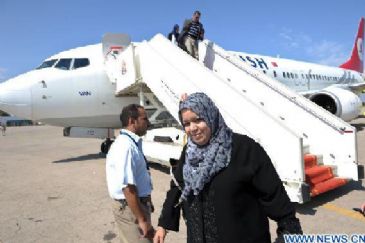Turkey has canceled a deal to supply overpopulated Istanbul with Russian gas over a pricing dispute. The cancellation means Turkey loses supply for some 15% of the gas it needs, causing a price hike for consumers. EurActiv Turkey contributed to this article.
The state-owned Turkish Petroleum Pipeline Corporation Botaş announced on Saturday (1 October) that it had canceled a natural gas supply deal with Russia’s Gazprom after it failed to obtain discounts.
The gas was meant to be delivered via the West line, a pipeline which passes through Ukraine, Romania and Bulgaria.
“Price increases should be bearable. We will revise our contracts that are nearing their end. Western Line is one of them. If our demands of price reduction are not met, we will terminate it,” Turkey’s Minister of Energy and Natural Resources Taner Yildiz said.
Gas prices had increased by around 39% during the past 29 months, Yildiz indicated.
The dispute ended a contract for the yearly distribution of 6 billion cubic meters of gas, Gazprom’s press service confirmed Sunday, without elaborating. The West line, which had been supplying gas since 1986, has already caused problems to Turkey because of the recurrent disputes between Russia and Ukraine.
But Turkey will continue to import gas via the Blue Stream pipeline, which carries gas across the Black Sea from the Beregovaya compressing station in Russia to the Durusu terminal, near the Turkish city of Samsun, the daily Hürriyet reported. Turkey buys nearly 16 billion cubic meters (bcm) of Russian gas via Blue Stream, under a contract which was set to expire 23 years after the pipeline’s construction.
Turkey’s annual natural gas consumption is nearly 37 bcm. Last year, Turkey imported 18 bcm from Russia, about 60% of its total domestic gas consumption.
However, Botaş announced on Saturday it would raise residential natural-gas prices by 12.3% to 14.3%, citing increases on international markets and the declining value of the Turkish Lira. The new pricing started taking effect the same day. Fees for industrial clients will go up 13.7% to 14.3%, the company also said.
Relations to develop nevertheless
The cancellation doesn’t mean natural gas purchases from Russia will stop, Taner Yıldız said.
The minister also made it clear that when Russia delivers the documents Ankara requested, the permission to build the South Stream pipeline trough Turkish waters would be granted.
“There are no problems in this respect,” he pointed out, adding that Turkey’s “strategic relationship” with Russia “cannot be affected by a few contracts.”
Russia has overtaken Germany as Turkey’s primary trade partner as bilateral trade is expected to surpass $40 billion (€30 billion) by the end of 2011, the daily Zaman reported. As well as a total of more than two-thirds of its natural gas, 20% of Turkey’s imported oil is provided by Russia. Nearly three million Russian tourists visit Turkey every year, and the two countries reciprocally removed visa requirements in mid-April.
Moreover, Turkey has also removed Russia from its list of external threats. Turkish
contractors have already completed some 1,200 projects around Russia, representing a total value of $32 billion (€24 billion).
Russia and Turkey also clinched a deal for the construction of Turkey’s first nuclear power plant in the coastal town of Akkuyu, in the southern province of Mersin. A consortium led by state-controlled Russian builder AtomStroyExport will construct the plant in Akkuyu, paying all of the construction costs for the plant, which is estimated to be some $20 billion (€15 billion).
Meanwhile, natural gas expert Alexei Gromov from Russia’s Institute for the problems of Natural Monopolies commented that Turkey was bluffing and gas prices had to be adjusted in relation to the increase in oil prices in May and June, Cihan News Agency reported.
Positions:
In a written statement, Gazprom Deputy CEO Alexander Medvedev said that private Turkish companies had in the meantime shown interest in buying Russian gas directly.
“We note that gas delivered through the Western line is required by Turkish commercial and industrial consumers. We are ready to deliver these volumes to our existing and new clients- private companies, for further delivery to end users on the Turkish market”, Medvedev said.
via Gazprom’s Istanbul supplies canceled over pricing dispute | EurActiv.






